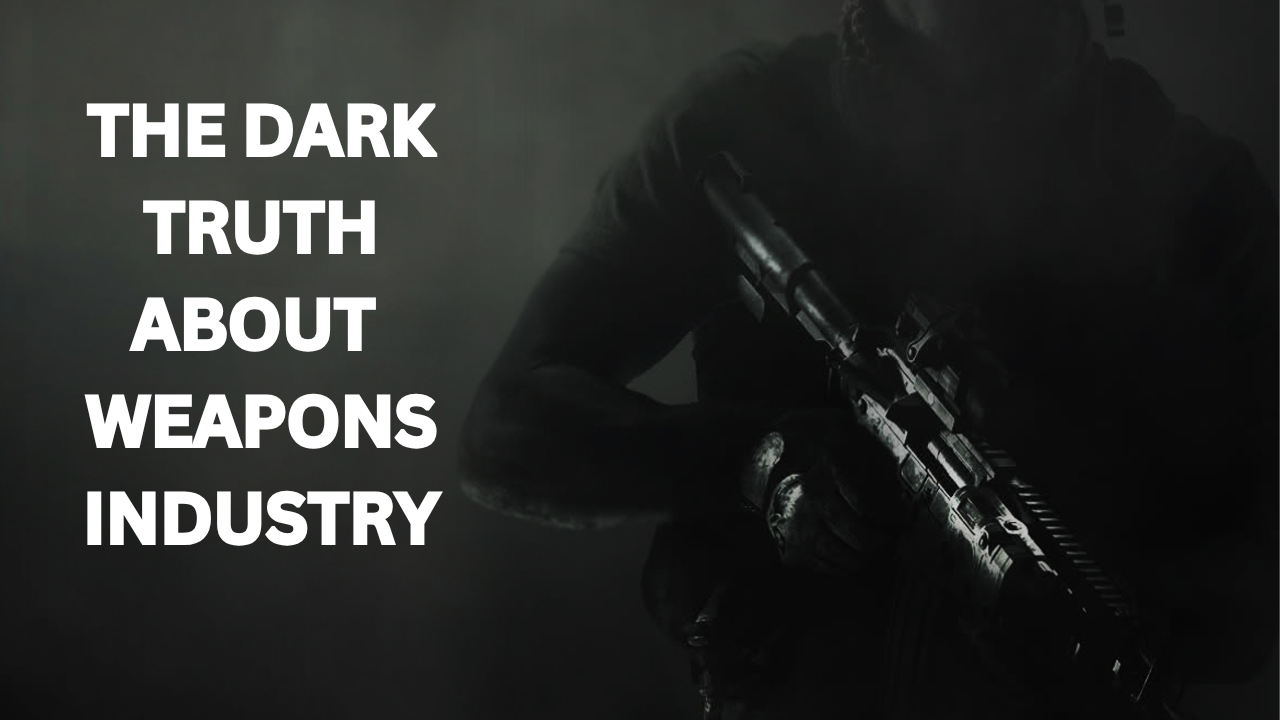The weapons industry is often seen as a necessary evil providing the tools to protect nations and maintain security behind the glossy advertisements and political justifications lies a darker reality the truth about this industry is far from the image of heroism and patriotism that it often projects the weapons industry is driven by profit with companies and governments profiting from the production and sale of deadly tools the impact of this industry stretches far beyond the battlefield it fuels conflicts perpetuates violence and often contributes to human suffering on a global scale weapons are not just used in wars between nations
But are also sold to regimes with questionable human rights records contributing to oppression unrest and instability the consequences are felt by innocent civilians whose lives are shattered by violence and destruction the rhetoric of defense and security the weapons industry true motives often lie in economic gain with little regard for the ethical or humanitarian cost the dark truth is that the weapons industry thrives on conflict and its growth depends on the perpetuation of violence.
Profiteering from War and Conflict:
Profiteering from war and conflict is a disturbing reality that drives much of the weapons industry while wars are often justified as necessary for national security or freedom they also create a lucrative market for weapons manufacturers and arms dealers these companies thrive on the destruction caused by wars as the demand for weapons, ammunition and military equipment skyrockets during times of conflict governments often under the guise of protecting citizens pour vast sums of money into purchasing these arms leading to massive profits for corporations.
Many weapons are sold to regimes with questionable human rights records fueling internal conflicts and atrocities against civilians the weapons industry not only benefits from direct military confrontations but also from the instability and chaos that follow this constant state of conflict ensures that arms sales continue to flow contributing to a vicious cycle where violence becomes a means to maintain economic growth for the industry the real victims of this profiteering are the people caught in the crossfire the innocent civilians whose lives are destroyed by the very weapons that are sold for profit with little regard for the human suffering caused.
Lack of Transparency and Accountability:
One of the biggest issues with the weapons industry is the lack of transparency and accountability that surrounds it much of the industry operates behind closed doors with governments and defense companies often keeping deals and contracts secret from the public eye this secrecy makes it incredibly difficult for people to fully understand where weapons are being sold who is profiting from them and what the true impact is on global stability and human rights arms deals are often made with little oversight which means that weapons can end up in the hands of dangerous regimes or groups fueling violence and oppression.
Even when weapons are used in ways that harm civilians or violate international laws those responsible are rarely held accountable this lack of accountability allows the industry to flourish unchecked with little regard for the long-term consequences of its actions the absence of transparency and accountability also means that taxpayers who fund much of the military spending have little say in how their money is being used or whether it is being spent responsibly the lack of oversight only strengthens the grip of the weapons industry while the human cost continues to rise.
Human Rights Abuses and War Crimes:
Human rights abuses and war crimes are tragic consequences of the global weapons trade, and they are often fueled by the very weapons sold by the industry when arms are sold to oppressive governments or militant groups they are frequently used to target innocent civilians suppress political opposition or carry out violent acts that violate basic human rights these weapons they used in state-sanctioned attacks or in civil wars often lead to atrocities such as mass killings torture and forced displacement even when international laws and human rights conventions are in place to protect people the weapons industry continues to profit from the chaos.
Many of the arms sold by weapons manufacturers end up in the hands of groups that are engaged in war crimes such as ethnic cleansing or indiscriminate attacks on civilian populations the obvious violations of human rights accountability for these crimes is scarce the secrecy around arms deals and the lack of transparency allow these abuses to go unnoticed or unchecked while the people suffering from the violence are often left with no recourse for justice the weapons industry plays a crucial role in enabling and perpetuating human rights abuses and war crimes with little regard for the lives it destroys in the process.
Influence of Foreign Policy and Global Conflict:
The influence of foreign policy and global conflict on the weapons industry is undeniable as military strategies and political decisions often drive the demand for arms nations around the world use their foreign policy to form alliances influence global power dynamics and secure their national interests often through military means this in turn creates a steady market for weapons countries may provide military aid or sell arms to allies as a way to strengthen ties or gain strategic advantages in global conflicts this practice can have dangerous consequences when weapons are sold to foreign nations they can end up fueling ongoing wars escalating violence or destabilizing regions.
Foreign policy decisions that prioritize military power often ignore the human cost of these actions focusing instead on short-term political gains as global conflicts spread or intensify the weapons industry benefits as the need for more advanced and powerful arms grows the influence of foreign policy plays a major role in perpetuating the cycle of violence as political decisions often prioritize military strength over peace-building or diplomacy the weapons industry becomes intertwined with global conflicts with little regard for the long-lasting impacts on the people caught in the middle of these geopolitical struggles.
